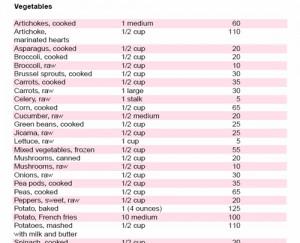 The results of a recent comparison study of four diets suggest that it doesn’t matter where the calories come from, as long as dieters reduce their daily intake of calories. That is how dieters ultimately lose weight.
The results of a recent comparison study of four diets suggest that it doesn’t matter where the calories come from, as long as dieters reduce their daily intake of calories. That is how dieters ultimately lose weight.
Dr. George Bray, who worked on the new study, said earlier research had found certain diets — in particular, those with very little carbohydrate — work better than others. Diet books also often guide consumers to adopt a particular type of meal plan, such as low-fat or low-carb-high-protein diets.
Since there hasn’t been consensus among scientists, Dr. Bray of Pennington Biomedical Research Center in Baton Rouge, Louisiana, and his colleagues randomly assigned several hundred overweight or obese people to one of four diets: average protein, low fat and higher carbs; high protein, low fat, and higher carbs; average protein, high fat and lower carbs; or high protein, high fat and lower carbs.
Each of the diets was designed to eliminate 750 calories a day.
After six months and again at two years after the diets started, the researchers checked in on people’s weight, fat mass and lean mass.
At six months, people had lost more than nine pounds of fat and close to five pounds of lean mass, but some of this was regained by the two-year mark.
People were able to maintain a weight loss of more than eight pounds after two years. Included in that was a nearly three-pound loss of abdominal fat, a reduction of more than seven percent.
The team found no differences in weight loss or fat reductions between the diets. It all comes down to calories.
Dr. Bray recommended a diet developed by some of his co-authors, and which is also endorsed by the National Institutes of Health, called the DASH plan, or Dietary Approaches to Stop Hypertension.
“We would encourage patients to follow this diet modified as they and their Health Care Provider chose to emphasize macronutrient changes that they thought might work best for them,” Bray said.
SOURCE: American Journal of Clinical Nutrition, online January 18, 2012.
 The results of a recent comparison study of four diets suggest that it doesn’t matter where the calories come from, as long as dieters reduce their daily intake of calories. That is how dieters ultimately lose weight.
The results of a recent comparison study of four diets suggest that it doesn’t matter where the calories come from, as long as dieters reduce their daily intake of calories. That is how dieters ultimately lose weight.
